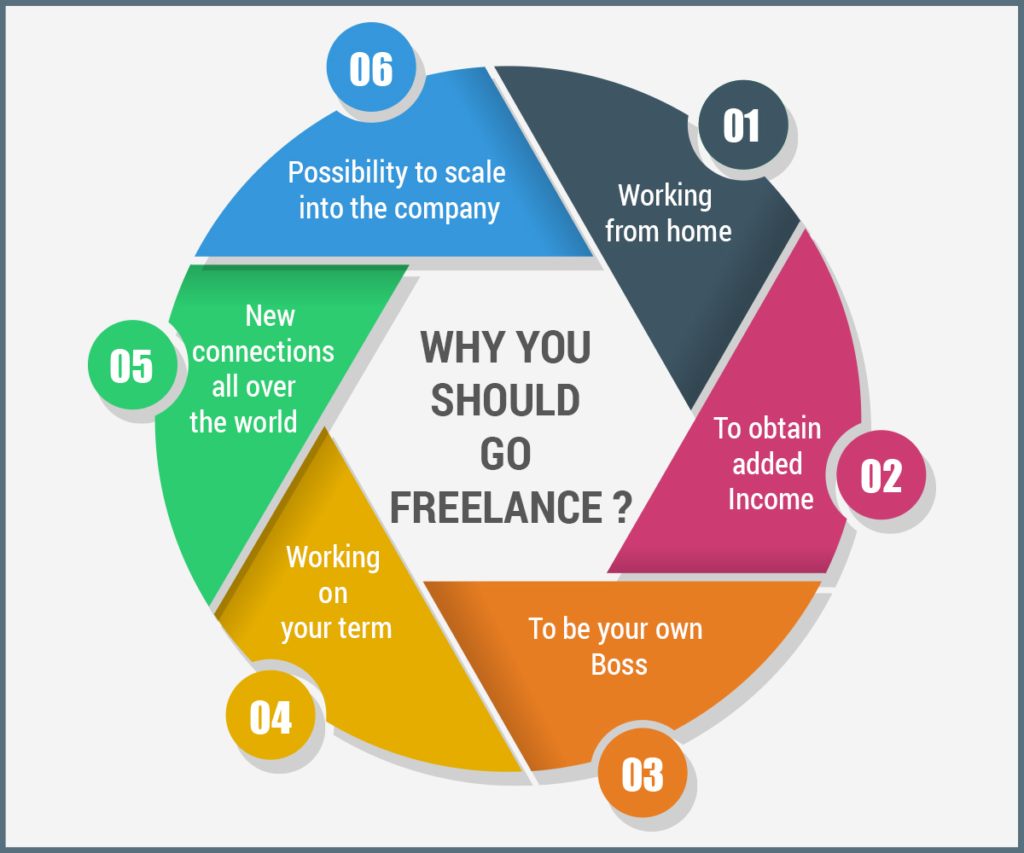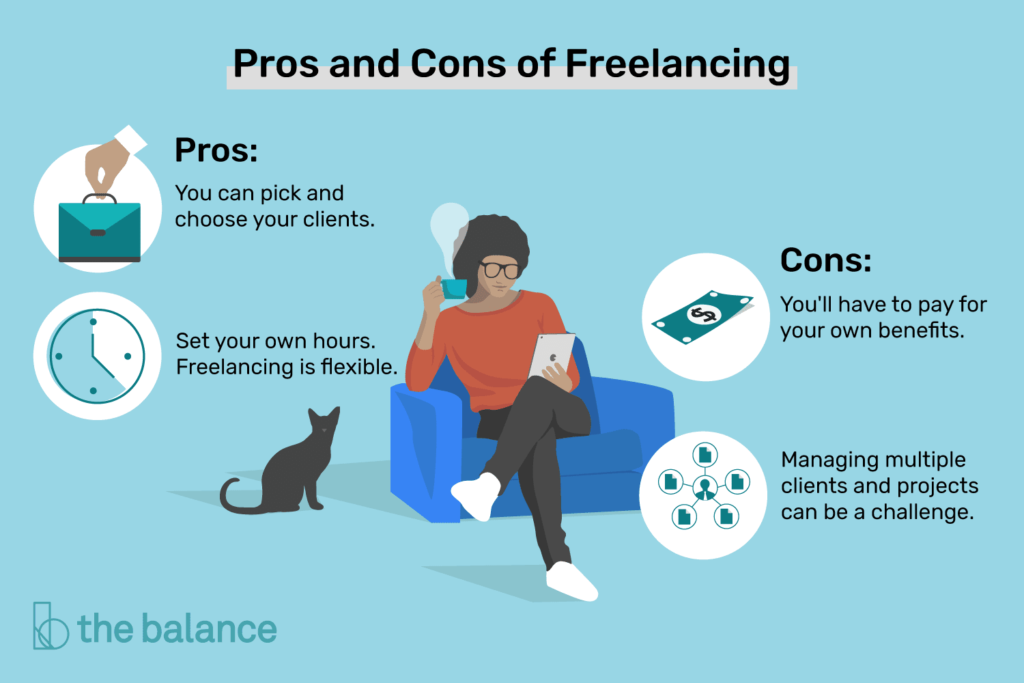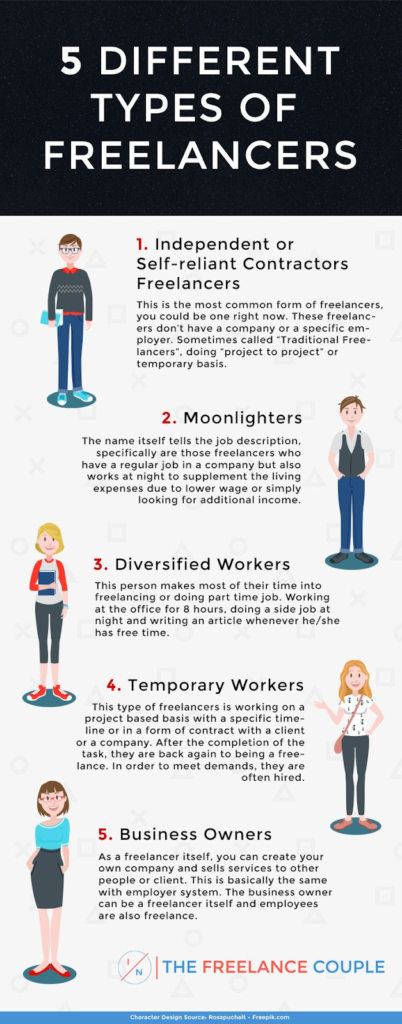
Table of Contents
- What is Freelancing?
- 7 Freelancer Types
- Which Freelancer Type are You?
- Key Takeaways
- Conclusion
- FAQs
With the world increasingly turning into a gig economy, and people starting to feel the need for more control over their lives, freelancing is the new normal. 2020 and 2021 witnessed a massive emergence of new freelancer types and equally new and creative gigs that created a market to be fulfilled by the services of these individuals. Freelancing is the “wanted” profession now more than ever before.

With the comfort of working from home and having complete control over one’s schedule, earning money through freelancing is now not just a side hustle; it is a full-time career for several individuals across different skill sets. The year 2022 is bound to record the highest number of people turning to freelance jobs, with the availability of platforms like Upwork, Freelancer, Fiverr, and several others.

What is Freelancing?
No long-term commitments, no boss who controls each minute of your work routine, and the independence of working on your terms is what the word “freelance” broadly encompasses. Freelancing is to work as an independent company or entity rather than be employed by someone. Popularly known as independent contractors, almost all freelance work types fall under self-employment. As a freelancer, an individual works for other companies or other individuals on a part-time or short-term basis.

The downside is that freelancers do not enjoy a guaranteed monthly compensation as full-time employees do. Still, the most lucrative element of freelancing is not working under someone. And that beats any other shortcomings of this area of work. Not every freelancer type associates themselves with the term “freelancer;” some call themselves “self-employed,” contract consultants, contract-to-hire workers, independent contractors, etc.
The word “freelance” has its origins back in the 1800s when the word was used as “freelance,” referring to a mercenary who would fight or kill for the person he was hired by. Lance was the word used to define the weapon used by the mercenary. Over time the word “freelance” was associated with the idea of working independently and for a short term. Freelancers worldwide provide their services as independent individuals across various niches.
7 Freelancer Types
Today, several freelancer types across different industries and companies, whether big or small, function on a number of outsourced gigs. This creates a lucrative market for freelancers worldwide. As freelancers, one does not have to travel or commute to fulfill a project; they can simply do it at a time and place as per their convenience.

In a way, freelancing is the simplest form of entrepreneurship without the hassles of running and maintaining a business. Let’s take a look a the different freelancer types:
1. The moonlighter
This type of freelancing is a traditionally full-time career. Moonlighters have a full-time source of income but take up freelance gigs as a supplementary source of money. You could be a full-time employee at an agency or an organization and take up small gigs on weekends and extended holidays. This is actually one of the most prevalent types of freelance work. Moonlighters work at a regular job the entire day and double up as freelancers at night, using the extra hours to earn extra money.
2. The independent contractor
The second on the list of freelancer types are independent contractors. They take up work on a project-by-project basis. They do not have a traditional job like the moonlighters; instead, they take up long-term gigs, such as a 10-12 month project. To put it simply, they work from one job to the next and do not take up several gigs all at once.
3. The freelance business owner
One can define this particular freelancer type as the entrepreneur of the freelance world. Freelance businesses are very different from the other types of freelance work. Freelance business owners combine freelancing with entrepreneurial skills and establish small independent companies of their own, employing several other freelancers to carry out the company work. They follow a structured small business model.
4. The temporary worker
This freelancer might have a full-time job, but their employment status is temporary. The projects they work upon can be short-term and could be extended indefinitely at times. This usually happens when large corporations undertake massive projects and hire a few temporary workers to supplement their company’s existing team. This addition to the full-time workforce could be temporary or extended as per the company’s requirement.
5. The diversified worker
A large number of freelancers are diversified workers. Diversified workers are known for making the best use of mixed means of work. They have a unique talent for fitting into several roles, as and when required. They juggle between part-time corporate work and freelance contracts as well.
There could be several reasons for diversified work, it could be done to make ends meet or add to one’s portfolio, and some freelancers purely enjoy multitasking. Diversified freelancers are moonlighters on weekends and independent contract workers during the weekdays. They plan their freelancing schedule as per their desired income and availability of time.
6. The freelance consultant
A freelance consultant is a person who works independently and gets paid for providing consultation services to an individual, a company, or an organization. They provide their professional or expert advice in a particular niche. As exciting and well-paid the profile of a freelance consultant is, it is one of the most challenging freelance jobs to crack. Freelance consultants have to find their clients and manage busy schedules.
To be a freelance consultant, one has to be highly qualified and hold expertise in a specific area of work. Networking and high personal responsibility are the two most essential qualities of a successful freelance consultant.
7. The experiential freelancer
The word experiential freelancer defines an individual who constantly keeps trying new things. An experiential freelancer does not stick to one strict job profile; they provide freelance services in different niches, which could be closely related or not; for example, several freelance writers also provide editing and proofreading services.
They might even double up as social media marketers or copywriting specialists. An experiential freelancer is in the freelancing industry to learn more than simply earn money. They value new opportunities and experiences and acquire new skills while taking up short gigs from time to time.
Which Freelancer Type Are You?
Freelancing is the most trending career choice for today’s youth especially. And this is not just restricted to people of the age group 18-24. Many other individuals who have retired from their regular jobs or have shifted to part-time work due to personal reasons can find fulfilling experiences working and earning as freelancers. While there are 7 distinct types of freelancers that have been listed, many people are a mix of two or three types. It is entirely up to you to decide which style suits your schedule and convenience.
Key Takeaways
- Freelancers work as an independent company or entity rather than being employed by someone. They fall under the category of self-employment.
- Not every freelancer type associates themselves with the term freelancer; some call themselves self-employed, contract consultants, contract-to-hire workers, independent contractors, etc.
- Today freelancing is the simplest form of entrepreneurship and one without the hassles of running and maintaining a business.
- Moonlighters have a full-time career, with a regular job that ensures a consistent source of income but take up freelance gigs to earn a little extra. This is one of the most popular types of freelance work.
- Independent contractors take up long-term freelance projects and do not have a regular job. They do not juggle between several freelance gigs at one time.
- Freelance business owners combine freelancing with entrepreneurial skills and establish small independent companies of their own and employ several other freelancers.
- Temporary workers might have a full-time job, but their employment status is temporary. The projects they work upon can be short-term and could be extended indefinitely at times.
- Diversified workers juggle between part-time corporate work and freelance contracts as well. They are one of the most popular freelancer types.
- A freelance consultant is a person who works independently and gets paid for providing consultation services to an individual, a company, or an organization. Their job is to provide professional or expert advice in a particular niche.
- Networking and high personal responsibility are the two most essential qualities of a successful freelance consultant.
- An experiential freelancer does not stick to one strict job profile; they provide freelance services in different niches, which could be closely related or not.

Conclusion
Irrespective of their freelancer types, all freelancers today are indeed a force to be reckoned with. If your work is exciting, enjoyable and you have the independence of not being tied from 9 to 5, following the commands of a supervisor the entire day, what could be better than this, right?
Freelancing is a small risk with the promise of a big and fulfilling reward. If you have the right skills and a keen understanding of the industry you want to freelance for, there are plenty of projects waiting to be farmed out to you as short-term, well-paid gigs.
FAQs
Some of the most popular skills that an individual can have today to excel as a freelancer include SEO writing, graphic designing, communication skills, editing skills, blogging and WordPress management, data input, microdot office, digital and social media marketing, etc.
Currently, the top 10 highest paying freelance job profiles are account executive, graphic designer, PR manager, programmer, copywriter, software developer, web developer, accountant, professor, and technical author.
As a freelancer, you are your own boss and employee. Hence, it is important to be aware of the correct pricing for your services as a freelancer. While high prices might keep away potential clients, charging significantly less will negatively impact your freelancing career in the long run. It is also an unfair compensation for your hard work.
Currently, freelancers worldwide use payment methods: Skrill, EFT, Checks, Debit/Credit card transfers, PayPal, Google Pay, Wire transfer, etc.
Self-employment can be defined as the state of working for oneself rather than an employer. Self-employed individuals find their source of work and income and work at their convenience. Some of the occupations that fall under self-employment include writers, freelancers, lawyers, accountants, artists, skilled trades, etc.
Latest Blogs
Explore how Google’s 2025 AI search updates triggered ranking chaos. Learn actionable strategies to adapt your SEO for AI Overviews, zero-click searches, and SERP volatility. Stay ahead now.
Learn how to rank on AI search engines like ChatGPT, Perplexity, and Gemini by optimizing your content for authority, structure, and relevance. Stay ahead in AI-driven search with this strategic guide.
Explore the best healthcare SEO services for your medical practice. Improve online visibility and effectively reach more patients in need of your services.
Get your hands on the latest news!
Similar Posts

Freelancing 101
5 mins read
11 Resources For Designers to Find Freelance Jobs Online

Freelancing 101
6 mins read
30 Freelance Industry Statistics to Get You Started

Freelancing 101
5 mins read